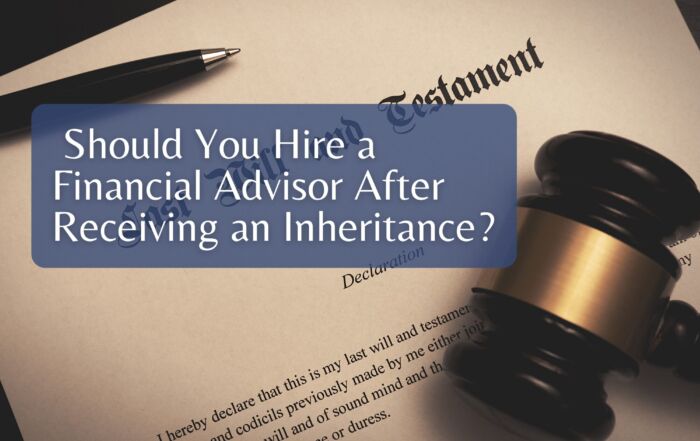Bad Financial Advice People Commonly Believe

As a financial advisor, I get asked a lot of questions. People wonder about the investment tidbits they read or the conventional financial wisdom they hear. Some of these I confirm are true, some could only be answered with “it depends,” and others are just foolish. Here is a list of bad financial advice people commonly believe.
-
Don’t payoff your mortgage, keep the money in the market.
We have written blogs and produced podcasts about this statement. My first question is always “who gave you this advice and was it in your best interest or theirs?”, because this is bad financial advice. Many financial advisors don’t want to lose on funds that they can bill thus some will make this recommendation. While it may make sense for a young person to not aggressively pay down the mortgage, the goal should always be to have it eliminated by retirement age. Retirement is all about cash flow. Not having debt will free you up to do things in retirement vs. pay for things in retirement. You will also have the highly sought-after financial peace of mind. You could face a major market event at some point during your retirement. In the middle of a major market correction, I always enjoy receiving — and I know the client prefers making — this phone call, “thank you for having us pay off our home, we are able to handle the markets with much less anxiety.”
-
Buy an Annuity so you never lose money in the market.
They should also add to this, “and never make much money either.” You should never buy an annuity for any reason and the person selling it to you should be in jail. It baffles me how annuity products and the people that sell them are not more closely regulated. Anytime you have a salesperson collecting 10% plus commission, targeting people over age 60 with low risk tolerance, and subjecting them to a 14 year surrender period and lots of never covered fine print, there should be big bold type on the signature line that states: “My interest and my firm’s interest are not aligned with your best interest. I am also collecting a large paycheck on this one transaction and you most likely will never hear from me again.” The solution is to get educated on how markets work, how annuities work and get the insurance company’s rate of return vs what they would be paying you. If this option still sounds appealing in your specific situation, be aware that even if the annuity does make money, you will still be passing on an estate tax to your beneficiaries.
-
Buy a whole life policy to qualify for more college aid.
The word is out. Whole life is expensive. A better alternative for the average American is to buy a Term policy, which is cheaper, then go max out investment vehicles like your 401k and a Roth IRA. Now that more people know this, insurance salesmen have to get more creative. The latest sales technique involves your children. Under the disguise of “College Coaching,” they will look at your finances and show you that all that cash you are holding will hurt you in getting college funding for your children. Chances are if you have $100K lying around, you probably also have an income that would hurt your ability to get funding as well, but let’s hear their game. Their solution to this problem is to offer you a whole life policy, which is not counted as an asset of the FAFSA form. They say the policy will grow and you can borrow from the cash balance. If you need Whole life, this might be a solution, but most people don’t need it. Do you know what else is not counted as an asset for financial aid? Your home! Yes, you can hide the $100K by simply paying down your home while also saving thousands in interest and preparing for retirement. The College planner aka Insurance salesman never seems to mention that.
-
Investment fund fees don’t matter if the fund is performing well.
This seems to make sense. The best things in life tend to cost more, right? In the investment world, this is not always true. In fact, S&P publishes a SPIVA report every six months comparing fund managers to the overall market. It may be surprising to some that a majority of fund managers do not beat their benchmarks over 3, 5, and 10-year periods. If you download the full data PDF, you will find that nearly all managers underperform over a twenty-year period. So we ask ourselves, “how long are we investing for? Until we die. When is that? Well, we don’t know, but it’s best to plan out to age 95 or higher to be safe.” We plan to be investors over our lifetime and since most of us have a long way to go, cost is very important. The S&P tells us that the higher cost funds won’t beat the S&P 500. Therefore, this is bad financial advice because investing in a fund with a high fee does not mean you get a higher rate of return.
-
“Can I afford the payment?” is all that matters when making a purchase.
Most people say that they would like to be wealthy, however their actions do not generate wealth. With enough monthly payments, you eventually live paycheck to paycheck with a great risk of default should your income be disrupted. Mortgage and car payments seem normal, but when you add student loans, recreational vehicle loans, the new refrigerator and furniture loans, things can quickly get out of hand. Delayed gratification is something that can be tough in a world where everything is on demand and others around us seem to have a nicer house or car than we do. In reality, however, we can’t build wealth while making payments to others. You might technically be able to afford that payment now, but saying yes too many times to the things that generate monthly payments can hinder future financial goals.
Perceived wisdom and commonly held advice about the financial world are always worth looking into more deeply. At Wiser, we welcome these conversations and invite clients to contact us when they encounter commonly held advice to see how it aligns with their unique financial situations. If you want to learn more or need guidance in developing a financial plan, please schedule an appointment with our team. We would be happy to assist you.
Casey T. Smith, President
Connect On Social Media:
Share This Story, Choose Your Platform!
Wiser Wealth Management, Inc (“Wiser Wealth”) is a registered investment adviser with the U.S. Securities and Exchange Commission (SEC). As a registered investment adviser, Wiser Wealth and its employees are subject to various rules, filings, and requirements. You can visit the SEC’s website here to obtain further information on our firm or investment adviser’s registration.
Wiser Wealth’s website provides general information regarding our business along with access to additional investment related information, various financial calculators, and external / third party links. Material presented on this website is believed to be from reliable sources and is meant for informational purposes only. Wiser Wealth does not endorse or accept responsibility for the content of any third-party website and is not affiliated with any third-party website or social media page. Wiser Wealth does not expressly or implicitly adopt or endorse any of the expressions, opinions or content posted by third party websites or on social media pages. While Wiser Wealth uses reasonable efforts to obtain information from sources it believes to be reliable, we make no representation that the information or opinions contained in our publications are accurate, reliable, or complete.
To the extent that you utilize any financial calculators or links in our website, you acknowledge and understand that the information provided to you should not be construed as personal investment advice from Wiser Wealth or any of its investment professionals. Advice provided by Wiser Wealth is given only within the context of our contractual agreement with the client. Wiser Wealth does not offer legal, accounting or tax advice. Consult your own attorney, accountant, and other professionals for these services.





